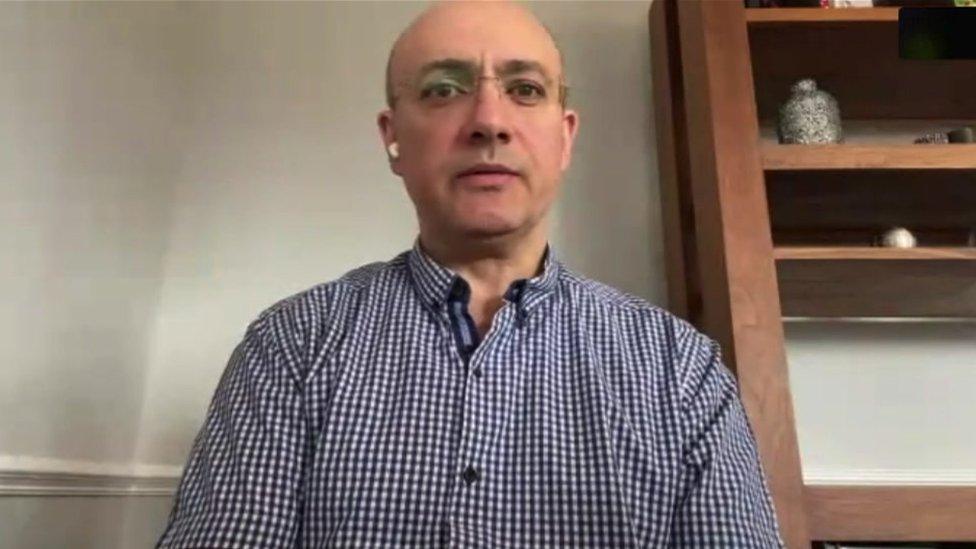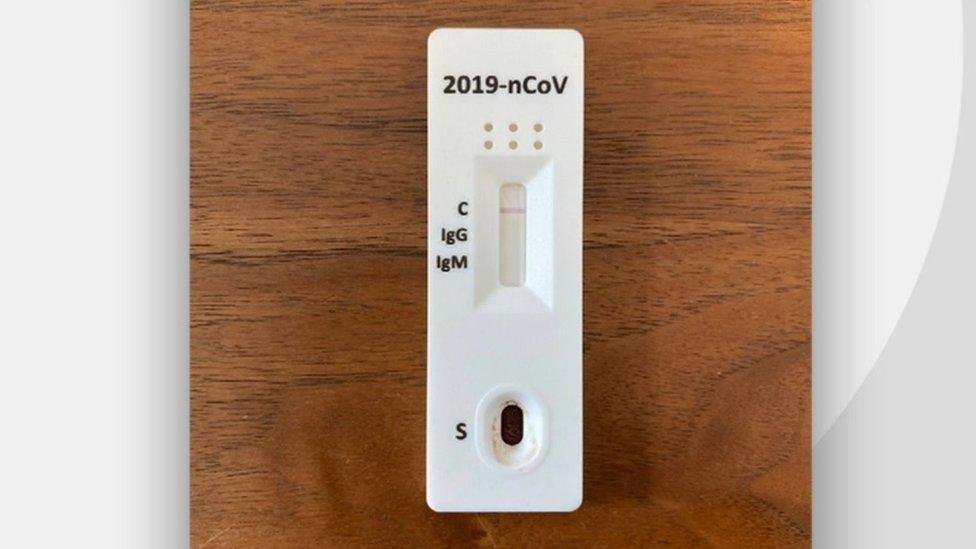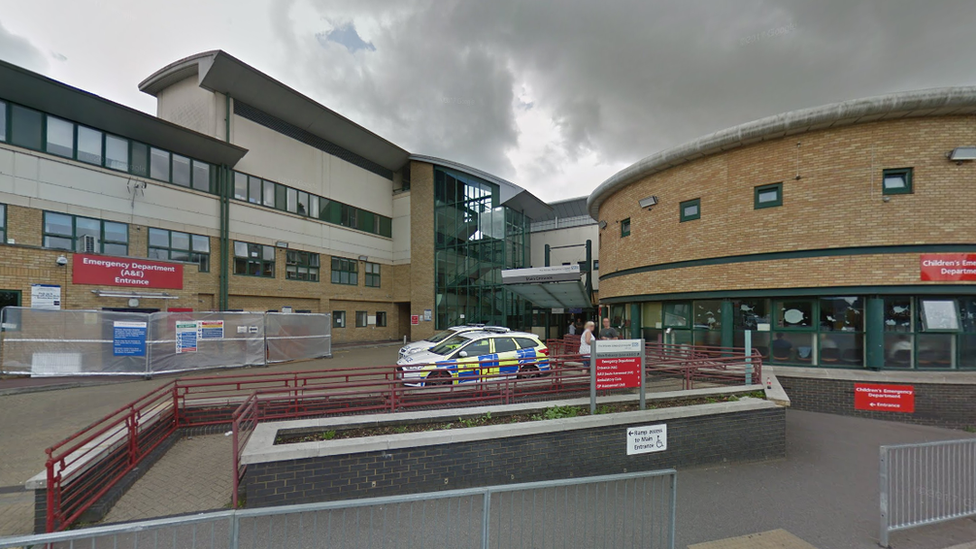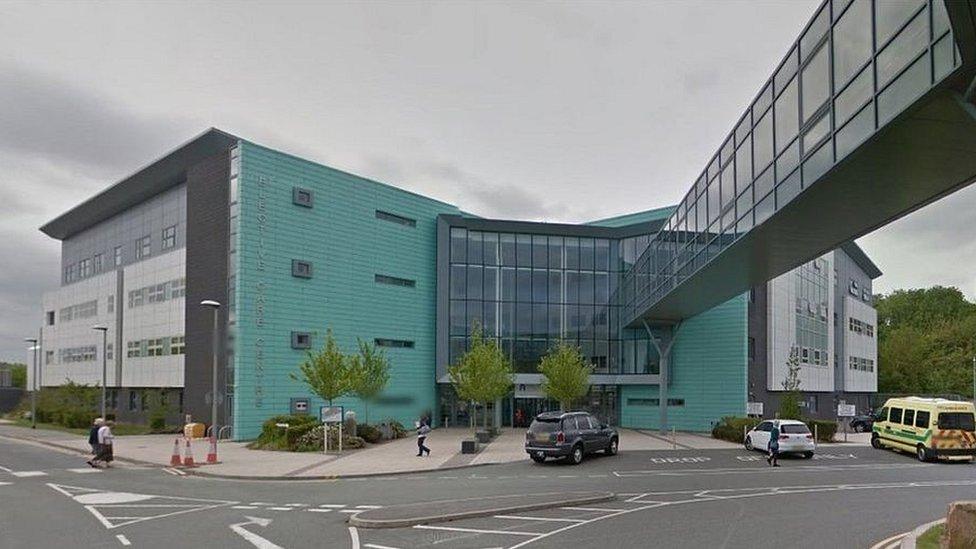Coronavirus: Test kit GP sales were 'not for profit'
- Published

Dr Beaini said healthcare staff were faced with getting ill through work
A GP who has taken down a website offering coronavirus testing kits insists he had never intended to make a profit.
Dr Youssef Beaini, from Bradford, said he had wanted to help fellow healthcare workers concerned about their health.
He was speaking after an article by the Guardian highlighted he was selling the tests, external.
The General Medical Council (GMC) said it expected doctors to be clear about the safety and accuracy of such tests.
Dr Beaini said he had acted with friends due to the concerns of himself and many colleagues.
"For the first time in our lives, through our work, we are looking at really up close the possibility of getting ill from the work," he said.
"Ending up in hospital, possibly even on a ventilator and dying."

Dr Beaini and friends purchased about 100 kits online to distribute and sell
He said the scheme was intended to help health professionals.
"The whole point was to make a positive impact on our society, in fact the project has turned out to have cost me about £1,000.
"Profit was never an aim of this project whatsoever."
The testing kits use a small amount of blood to reveal if a person has Covid-19, Dr Beaini said.
Public Health England has said there were no testing kits for coronavirus approved for home use.
Dr Beaini said he and his friends purchased about 100 kits and sold about 40, the rest being donated to health professionals and key workers.
An administrative error meant two kits were sold to members of the public and they have since been refunded, he added.
In a statement, a GMC spokesperson said: "We would be concerned to learn that doctors are exploiting patients' vulnerability or lack of medical knowledge, in order to profit from the fear and uncertainty caused by the pandemic.
"We also expect doctors to be clear about the safety and accuracy of Covid-19 tests, and not to offer or recommend tests that are unproven, clinically unverified and or otherwise unreliable."

A SIMPLE GUIDE: How do I protect myself?
AVOIDING CONTACT: The rules on self-isolation and exercise
LOOK-UP TOOL: Check cases in your area
MAPS AND CHARTS: Visual guide to the outbreak
VIDEO: The 20-second hand wash


Follow BBC Yorkshire on Facebook, external, Twitter, external and Instagram, external. Send your story ideas to yorkslincs.news@bbc.co.uk, external.
- Published6 April 2020

- Published6 April 2020
